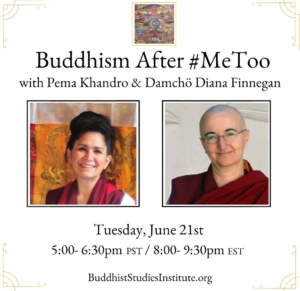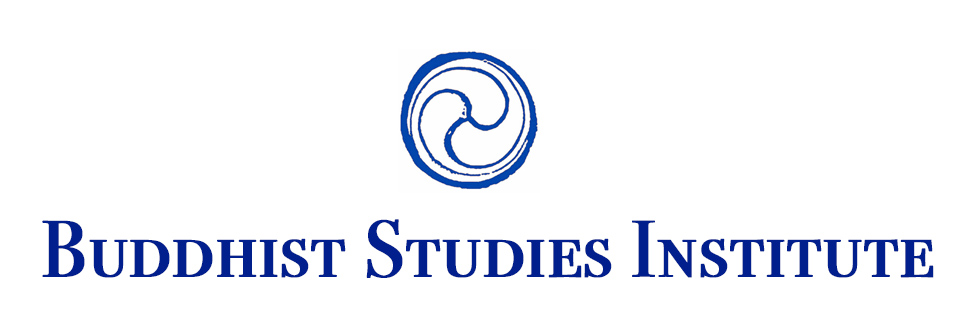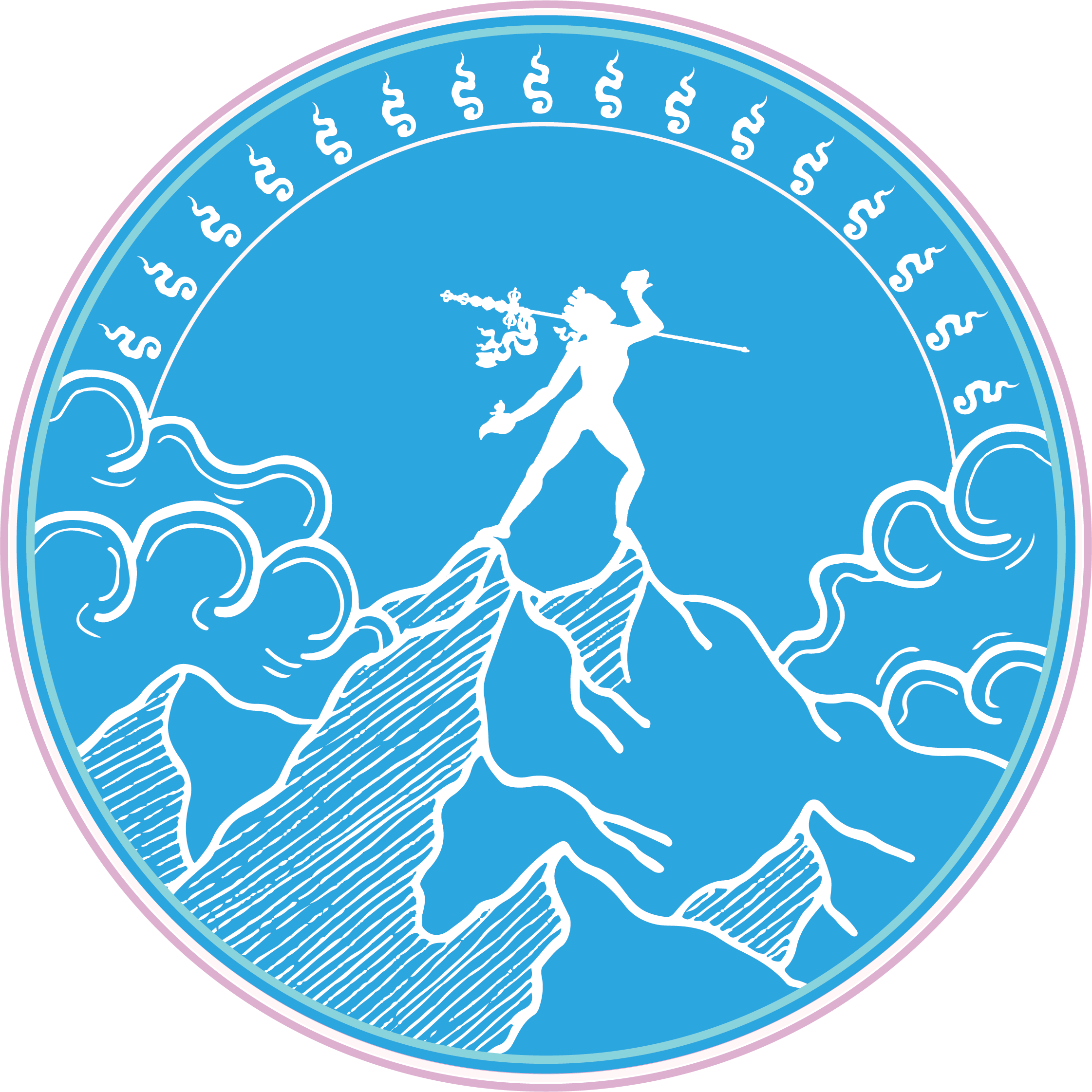2022.6.Buddhism After #MeToo

A dialogue between two Buddhist teachers and scholars, making sense of Buddhism, lineage, transmission and devotion in light of abuse revelations in the #metoo movement. This conversation focuses on how these issues have shaped our approaches to dharma practice and teaching. This is not prescriptive advice, but instead a conversation and reflection on how our practice and teaching approaches have changed and will continue to change with great concern for all survivors and for the future of women in Buddhism.
Damchö Diana Finnegan
After a career as a journalist based in New York and Hong Kong, Damchö Diana Finnegan ordained as a Buddhist nun in 1999. In 2009, she received her PhD from the University of Wisconsin-Madison, with a thesis on gender and ethics in Sanskrit and Tibetan narratives about Buddha’s direct female disciples in the Mūlasarvāstivāda Vinaya. After completing her dissertation she worked closely with the 17th Gyalwang Karmapa, Ogyen Trinley Dorje, serving as co-editor on various publications, including Interconnected: Embracing Life in a Global Society and The Heart Is Noble: Changing the World from the Inside Out. In 2007, she co-founded Dharmadatta Nuns’ Community (Comunidad Dharmadatta), a community of Spanish-speaking Buddhist nuns, based first in India and later in Mexico. Together with the other Dharmadatta nuns, she leads a large Latin American community with a commitment to gender and environmental justice as part of its spiritual practice. At the same time, Damchö continues to participate in academic circles, presenting at conferences, editing books, and engaging in various research projects. The most recent publication on which she collaborated, a translation from Sanskrit and Tibetan of the manual for conferring full ordination to women, was published in 2021 by Hamburg University’s Numata Center for Buddhist Studies under the title: “The Buddhist Nuns’ Ordination in the Tibetan Canon.
Pema Khandro
Pema Khandro is a teacher and scholar of Buddhist philosophy. She has a bachelor’s degree in Sociology, a Master’s degree specializing in Tibetan buddhism and she is currently completing her Ph.D. in Buddhist Studies at the University of Virginia. She is a Fulbright-Hays scholar and currently a Ford Foundation Fellow. Her scholarly research focuses on the history of Dzogchen and on gender studies. Pema Khandro is also the founder of Ngakpa International and its three projects, The Buddhist Studies Institute, Dakini Mountain and the Yogic Medicine Institute. She is an authorized Lama and lineage holder of the Nyingma and Kagyu traditions and was enthroned as a tulku to carry on the lineage of her predecessor, the first Pema Khandro, an early twentieth century yogini in Eastern Tibet. She has led a vibrant world-wide community since 1999. Through the Buddhist Studies Institute, she also offers a complete curriculum of training in Tibetan Buddhist Philosophy and practice.



